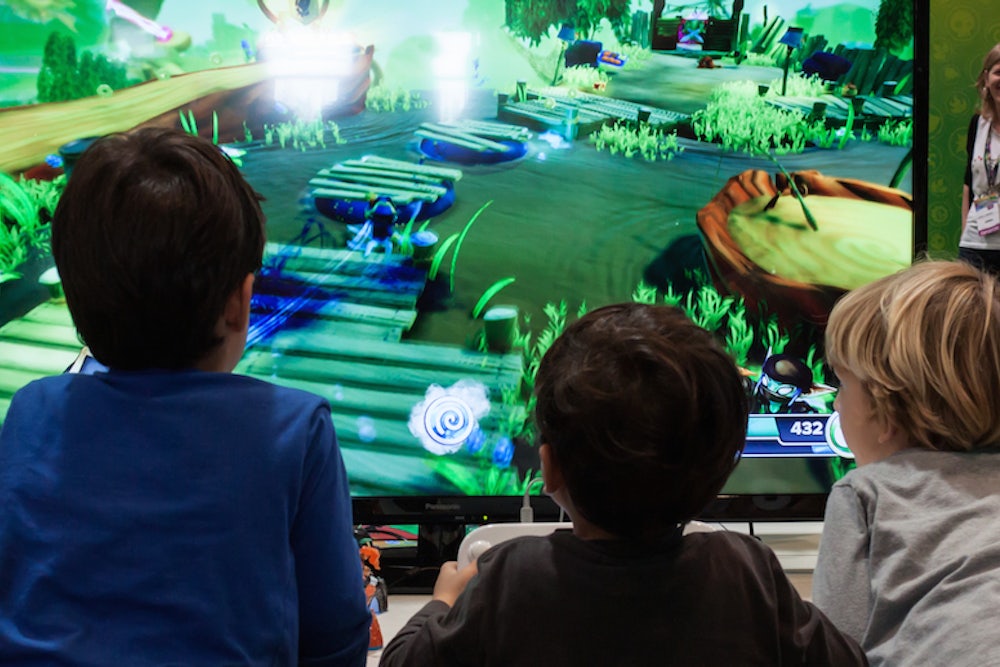Although nearly three in five Americans believe violent video games encourage violent behavior, social scientists aren't as sure—and new research suggests that whatever aggression people feel after playing video games may have less to do with the normalization of violence and more to do with frustration. For a study in the Journal of Personality and Social Psychology, researchers at Oxford University and the University of Rochester measured subjects’ levels of aggression after they spent 20 minutes playing violent or non-violent video games of varying degrees of difficulty. They found that aggression was correlated not with the level of violence of the games, but with the amount of frustration involved in mastering them. Players registered higher levels of aggression when hand controls were less intuitive, when the built-in challenges of the game were harder, and when the players had less practice. Experimenters measured players' aggression levels by having them rank statements like “I feel irritated, “I feel friendly” and “I feel like I am about to explode,” as well as by administering lab tests. For instance, researchers asked the volunteers to determine how long the next player would have to spend submerging his or her hand in ice water; people who had experienced high levels of frustration during the games sentenced other players to longer spells of uncomfortable cold-water immersion.
Video games may have less impact on violent behavior than we thought, but they are still impacting the consciousness of the 97 percent of young Americans who play them. Here's how.
They give you good dreams
Insomniacs are counseled to avoid electronics at night, but research suggests that playing video games before going to bed raises the chances of "lucid dreaming"—vivid dreams in which the person becomes conscious they are dreaming and, sometimes, becomes able to control the plot—and decreases the likelihood of having nightmares. Inspired by research showing certain commonalities between video gamers and lucid dreamers—both have higher-than-average spatial skills and low susceptibility to motion sickness—Jayne Gackenbach, a psychologist at MacEwan University in Canada, had 377 college students fill out dream reports and answer questions about their video game habits. She found that people who regularly played video games were more likely to report lucid dreams. “Gamers are used to controlling their game environments,” she hypothesized, “So that can translate into dreams.” For a subsequent 2008 paper in the scientific journal Dreaming, Gackenbach explored how video games affect the content of people’s dreams. After analyzing the dreams of about 100 college students, some of whom played video games often, she found that the gamers experienced fewer dreams that featured aggression. This fits in with Finnish psychologist Antti Revonsuo’s theory of “threat simulation”—that we come to terms with threatening situations from real life by confronting them in our sleep. Video games may offer another way for people to work out their feelings towards stressful or threatening scenarios, freeing up their dreams for more pleasant subjects.
They improve eyesight
In spite of whatever eyestrain gamers feel, action-oriented video games might actually have a positive impact on vision. University of Rochester cognitive scientist Daphne Bavelier explored the effects of video games on eyesight for a 2009 paper in the journal Nature Neuroscience. She divided 22 college students into two groups, and had one group play action video games like “Call of Duty 2,” while the other group played the less action-oriented “Sims 2.” Bavelier and her team assessed the students’ ability to distinguish between close shades of gray at the beginning of the experiment and nine weeks later, after they’d spent 50 hours playing the games. She found that the students who played action games improved their ability to discern between grays by 43 percent, while those who played Sims showed no improvement. “Action video games train the brain to process the existing visual information more efficiently, and the improvements last for months after game play stopped,” she explained. In an earlier paper in Psychological Science, Bavelier found that action video games also helped players improve their ability to see objects or pictures in a crowded space. She arranged for ten college students who didn’t regularly play video games to receive 30 hours of training in action video games—and observed a “substantial increase” in their ability to pick objects like letters out of a cluttered space.
They help the brain focus
Last year, Italian researchers led by Sandro Franceschini at the University of Padua found that playing action-oriented video games helped dyslexic children improve their scores on reading tests. Franceschini and his colleagues had one group of dyslexic children spend 12 hours playing action video games over the course of nine days, while another group played non-action video games. When the researchers administered reading tests at the end of the study, they found that the group that played the action game had significantly improved their reading speed, without compromising accuracy—though non-action games had no effect on reading pace. The researchers believe that action-oriented video games help teach the brain to focus for a sustained period.
